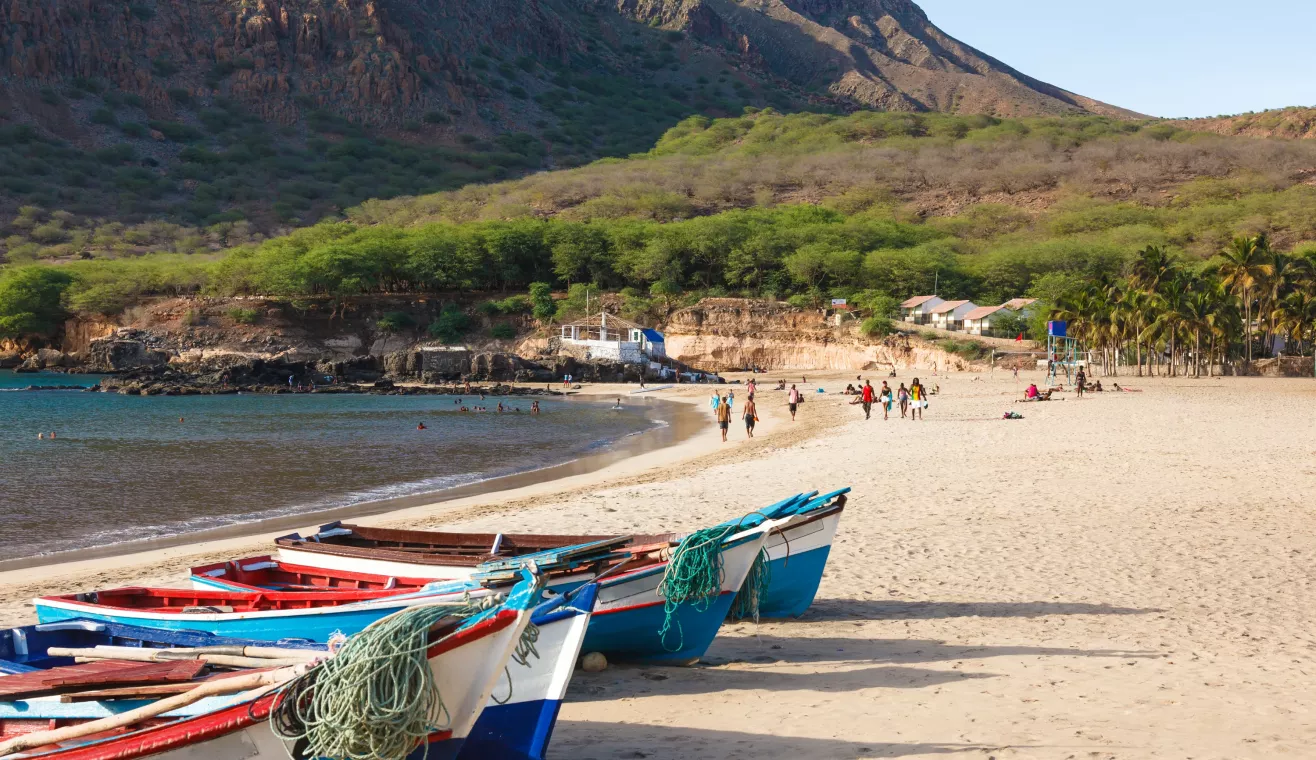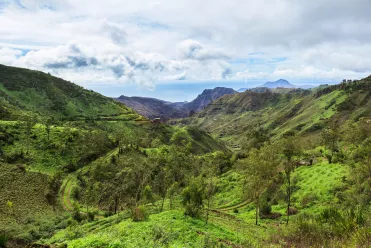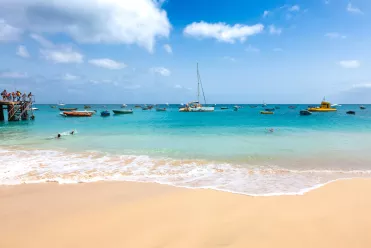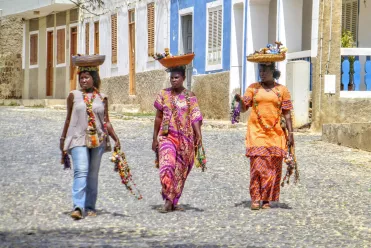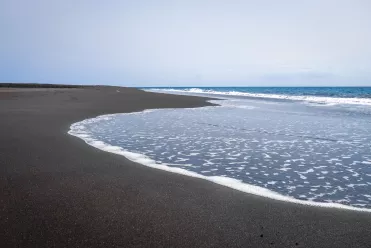Ready to discover Cape Verde, an archipelago of unique charm, between sea, mountains and Creole culture? This guide is made for you, to help you plan a memorable trip to these fascinating islands.
To find out more about Cape Verde...
Cape Verde is an archipelago off the coast of Africa. Made up of ten main islands, it offers a diversity of landscapes and cultures. Here are just a few of the islands not to be missed during your stay:A few things you need to know
From Paris, it takes around 6 hours to fly to Cape Verde. Round-trip airfares generally range from 350 to 700 euros, depending on the season and the airline chosen.
Discover all our flights and our best prices directly on our flight booking platform.
We recommend a stay of 10 to 14 days to explore the archipelago. You'll be able to discover several islands, while taking time to enjoy the local culture and its varied landscapes.
French citizens only need a passport valid for at least 6 months after the planned return date to enter Cape Verde. A tourist visa is required, but can be easily obtained online or at the arrival airport.
Before you leave, be sure to check the current information on the Cape Verdean authorities' website for any updates on administrative formalities.
The official language of Cape Verde is Portuguese, but Cape Verdean Creole is widely spoken on the islands. English is understood in tourist areas, but learning a few words in Portuguese or Creole can enrich your experience.
Here are some useful words and phrases to know:
- Obrigado / Obrigada: Thank you (depending on gender)
- Bom dia: Good afternoon
- Boa tarde: Bon après-midi
- Boa noite : Bonsoir
- Por favor : S'il vous plaît
- Desculpe : Désolé(e) Sim / Não : Oui / NonOnde fica...? : Where is... ?
The local currency is the Cape Verdean escudo (CVE). As a rough guide, 1 euro is equivalent to around 110 CVE. It's advisable to change your money at local exchange offices or banks. Credit cards are accepted in larger towns, but make sure you have cash on you, especially in more remote areas.
Cape Verde enjoys a subtropical climate, with mild temperatures all year round. The dry season, from November to June, is ideal for visiting the archipelago, although temperatures are pleasant even during the rainy season (July to October), which is shorter and milder.
Cape Verdean cuisine is a blend of African, Portuguese and Creole flavors. The signature dish is catchupa, a stew based on corn, beans, vegetables and meat (or fish). The cachupa fria is a cold version of this dish, often served as an appetizer. Also popular are pastéis de milho (fried cornballs) and grilled fish. Finally, don't forget to try grogues, a local brandy, often made from sugar cane.
Cape Verde is generally 2 hours behind France. For example, when it's noon in Paris, it's 10 a.m. in Praia.
Get ready to discover unforgettable Cape Verde
Whether you're passionate about hiking, paradise beaches or local culture, Cape Verde will win you over with its diversity and warm welcome. Each island has its own character and offers unique experiences.
Happy travelling, and don't hesitate to share your adventures with us by mentioning us on social networks or using the hashtag #atcroutesdumonde!
